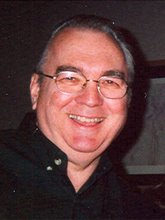I greatly longed to understand Paul’s Epistle to the Romans and nothingLater he wrote the hymn that came to be the “battle-cry of the Reformation,” A Mighty Fortress Is Our God. (Click on one of the links after the word “Listen” at the top of the page to hear a majestic version of this incomparable hymn). In his book on the history of gospel hymns, Ira Sankey (co-worker with D. L. Moody) tells the following story:
stood in the way but that one expression, ‘the justice of God,’ because I took
it to mean that justice whereby God is just and deals justly in punishing the
unjust. My situation was that, although an impeccable monk, I stood before God
as a sinner troubled in conscience, and I had no confidence that my merit would
assuage him. Therefore I did not love a just and angry God, but rather hated and
murmured against him.
Yet I clung to the dear Paul and had a great yearning to know what he
meant. Night and day I pondered until I saw the connection between the justice
of God and the statement that ‘the just shall live by his faith’ [Rom. 1:17].
Then I grasped that the justice of God is that righteousness by which through
grace and sheer mercy God justifies us through faith. Thereupon I felt myself to
be reborn and to have gone through open doors into paradise. The whole of
Scripture took on a new meaning, and whereas the ‘justice of God’ had filled me
with hate, now it became to me inexpressively sweet in greater love. This
passage of Paul became to me a gate of heaven….”
In 1720 a remarkable revival began in a townIf Martin Luther had done nothing else but give us this hymn, we would still sing it and be forever in his debt. Those stirring final words put steel into the soul of every Christian because they remind us of what matters most:
in Moravia. Jesuits opposed it, and the meetings
were prohibited. Those who still assembled were seized
and imprisoned in stables and cellars. At David
Nitschmann’s house, where a hundred and fifty persons
gathered, the police broke in and seized the books. Not dismayed,
the congregation struck up the stanzas of Luther’s
hymn,
“And though this world, with devils filled,Should threaten to undo
us;We will not fear, for God hath willedHis truth to triumph through
us.”
Twenty heads of families were for this sent to jail, including
Nitschmann, who was treated with special severity.
He finally escaped, fled to the Moravians at
Herrnhut, became a bishop, and afterwards joined the
Wesleys in 1735 in their expedition to Savannah,
Georgia.
On this Reformation Day 2007, we pause to give thanks to God for Martin Luther and for the recovery of the gospel truth that we are declared righteous in the eyes of God solely on the basis of what Jesus Christ accomplished for us in his bloody death and victorious resurrection. We are savedLet goods and kindred go,
this mortal life also;
The body they may kill:
God’s truth abideth still,
His kingdom is forever.
And because of this we are not alone. Amen!By grace alone,
Through faith alone,
In Christ alone.
Maranatha!

1 comment:
Amen!
Post a Comment